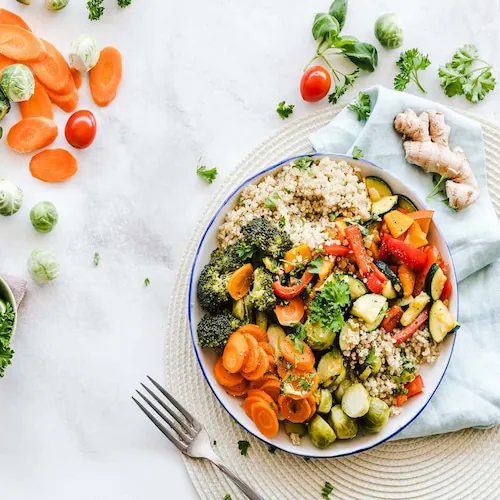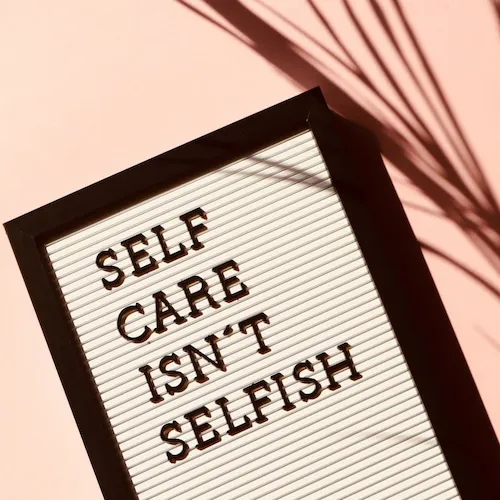World Mental Health Day occurs on Sunday the 10th of October this year. Each year this day passes without the recognition it truly deserves but thankfully that is changing. With increased awareness, mental health is becoming one of the most talked-about topics in 2021. Covid-19 has only seemed to exaggerate its importance with many of us being confined to the indoors for over 18 months. Although the term ‘mental health’ is commonly used, still not many of us fully understand it. As a progressive Irish-run business, EZ Living Furniture wanted to highlight this day to our staff members, customers, and every single individual across the world who may be struggling with their mental health. We want to help you understand exactly what mental health is, how to identify the symptoms, and how it can lead to burnout if not resolved. We offer helpful tips and advice on how to prevent burnout and give you all the information needed to keep you mentally strong.

What Is Mental Health?
Mental health includes our social, emotional, and psychological well-being. It affects how we act, feel and think. It also helps to determine how we deal with stress, relate to others, and make healthy life choices.
What Is Burnout?
Burnout is a form of exhaustion typically caused by ignoring your mental health. It’s a result of excessive and prolonged mental, physical, and emotional stress. In many cases, burnout is related to a person’s job, but this isn’t always the root cause. It can begin at home because of family, friends, or simply come from everyday tasks or hobbies. Burnout is gradual and not something that will happen to you instantly one morning.
Tips To Benefit Your Mental Health & Help Prevent Burnout
Trying to balance work and life with self-care can be difficult. Taking care of our most basic needs first is the best and most effective way to prevent and recover from burnout and mental health problems. Like plants, we need food, water, and a non-toxic environment to flourish, but there are many other elements that can help too and we have listed them below for your convenience.
What Is Burnout?
Sleep
Getting a full night's sleep is essential for your mental health. Typically each adult should receive on average 8 hours of sleep per night. If you are someone who cherishes every minute of time snuggled up in bed, make sure that you prioritise sleep - that means switching off devices at least 30 minutes before bedtime. A bedroom should be a safe haven away from technology so try storing it in your bedside locker overnight to help to resist the temptation. Consider a power nap during that day if you feel like you are not receiving the minimum amount of sleep each night. Taking 20-40 minutes out of your day for a power nap on the sofa or indeed your everyday mattress can be just as effective for some as a full night’s sleep.

Exercise
Regular physical activity helps us to de-stress and clear our minds. Although many of us come home exhausted after a long, hard day, that doesn’t mean that it shouldn’t be on the top of our to-do lists. It plays a huge role in preventing the development of burnout and mental health problems. It can increase our self-esteem and help to reduce stress and anxiety. You don’t need a gym membership, a simple and short walk outdoors can give most individuals a whole host of mental and physical benefits. Remember, any exercise is better than no exercise.
Sometimes, doing the same exercise routine continuously can leave us feeling like we’re unproductive. So, don’t forget to change up your routine for a short period to get back to what you love doing. When you return to your typical routine or hobbies, you often come back feeling refreshed and rejuvenated.

Food & Nutrition
Food is our main source of energy. We use it to fuel our bodies which is why it is so important to fill our bodies with foods that offer us the best nutritional value. Unhealthy foods can be comforting, we know, there’s no better feeling than sitting down with a spice bag in hand. But after the spicy, sugary, MSG-induced coma has passed, what are we left with? Something that has contributed to worsening our mood disorder. At least, that is what studies have come to suggest. Foods such as fruits and vegetables and those that are rich in omega-3 fatty acids are proven to help both mental and physical health problems.
Be mindful of the time you take to eat your meals too. Rushing through breakfast, lunch and dinner will only lead to an increase in stress levels and possible burnout. Make sure to sit down at your dining room table in the evening, lay out your favourite dinnerware, and have your cutlery at the ready. Spend as much time as you feel is necessary and comfortable to fully enjoy your meal. During work, if working in an office, you must walk away from your desk and computer. Removing yourself from your ordinary, everyday workspace is essential at mealtimes.

Social Interaction
Social isolation has long been known as the key trigger for mental illness. People with supportive friends and family will usually have better mental and physical health than those who lack these networks. Social media has been instrumental in helping us to keep in touch with those we usually wouldn’t see or meet on a regular basis. And when those individuals are abroad, this is one of the only methods of communication that we use to contact them. However, face-to-face communication and getting together with friends and family on a regular basis is said to act as a sort of vitamin for depression. It’s not that emailing or calling is bad for you and that you should cut this out completely but using your time effectively to meet up with your bestie for a coffee is worth much more for your mental health.
Other forms of face-to-face social interactions include activities such as volunteering. This is known to boost a person’s wellbeing and of course, help those who are vulnerable in our society.
Most people need time and friendships outside of work to find balance.

Self-Care
Spending time by yourself is key. Social interaction is important, but too much of it can leave you feeling drained with not much more to give emotionally and physically. Set aside the time to prioritise your self-care with the things that make you happy. Maybe something you enjoy doing is watching TV by yourself while snuggled up on the sofa? Perhaps yoga is your ideal activity? Or it could be something as simple as lighting a candle and practising breathing exercises that brings you joy?
You will need to practice these tips above to help you thrive at home and at work. But should you still be experiencing mental health problems in spite of these helpful nuggets of information, don’t be afraid to talk to someone. If burnout or your mental health is beginning to seriously impact your life then we suggest reaching out and seeking the help of a professional.
Below is a list of contact details of Mental Health Organisations around Ireland that are there to listen and help you with your concerns.
Phone Number: 116123
Email: [email protected]
Phone Number: 1800 247247
Text: Help to 51444
Phone Number: 01 2841166
Email: [email protected]
We hope you enjoyed this content and found it useful and informative. We aim to share our expertise and knowledge with our customers and to do this we have a team of content creators working tirelessly behind the scenes. We do not use AI to create our content. Click this link to find out more about our team and content guidelines.






